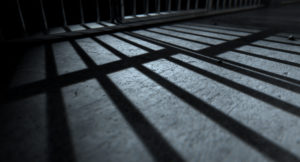Degree of Crimes in New Jersey
Criminal Defense Lawyers in Hackensack, New Jersey

Facing a criminal charge in New Jersey can threaten your reputation, your livelihood, and many other components of your life. Fortunately, you do not need to travel these uncertain waters alone. An experienced criminal defense attorney can serve as your supporter, your defender, and your advocate as you confront what often seems an insurmountable challenge at the outset. The attorneys at The Tormey Law Firm are passionate about what they do and dedicated to turning over every rock and pursuing every possible avenue to achieve the best possible outcomes for their clients. Whether your case involves charges for theft by deception, shoplifting, credit card fraud, or another offense, we will stop at nothing to obtain a successful resolution.
If you or a loved one is facing criminal charges in New Jersey, our lawyers will employ their extensive knowledge of the law, solid connections, deft negotiation skills, and zealous advocacy to help you overcome the allegations against you. Contact our Hackensack offices anytime at (201)-330-4979 to receive a free consultation.
Degrees of Crimes in New Jersey: Grading of Criminal Charges
The New Jersey statute that governs degrees of crimes is N.J.S.A. 2C:43-1. It provides, in pertinent part:
§ 2C:43-1. Degrees of crimes
a. Crimes defined by this code are classified, for the purpose of sentence, into four degrees, as follows:
(1) Crimes of the first degree;
(2) Crimes of the second degree;
(3) Crimes of the third degree; and
(4) Crimes of the fourth degree.
A crime is of the first, second, third or fourth degree when it is so designated by the code. An offense, declared to be a crime, without specification of degree, is of the fourth degree.
Degrees of Crimes in New Jersey: Superior Court vs. Municipal Court
A first degree, second degree, third degree, or fourth degree crime in New Jersey is an indictable (felony) criminal offense which must be handled by the Superior Court in the county in which the crime allegedly occurred. Indictable offenses must be presented to a grand jury for indictment. An indictment is the formal charging document which charges the defendant with the crime. Prior to that, the case is in the complaint stage. In certain circumstances, an indictable charge can be expunged after five (5) years.
Disorderly persons offenses and petty disorderly persons offenses, the lowest-level criminal offenses in New Jersey, are handled in the Municipal Court in the municipality in which the crime allegedly occurred. Disorderly persons offenses do not need to be presented to a grand jury for indictment because they are prosecuted via complaints or summonses. In most cases, a disorderly persons offense can be expunged from your record after five (5) years.
Penalties for Degrees of Crimes in New Jersey
The penalties for the above criminal offenses are as follows:
- First Degree: Ten (10) to 20 years in prison (presumption of incarceration)
- Second Degree: Five (5) to ten (10) years in prison (presumption of incarceration)
- Third Degree: Three (3) to five (5) years in prison (presumption of non-incarceration)
- Fourth Degree: Maximum of 18 months in prison (presumption of non-incarceration)
- Disorderly Persons Offenses: Maximum of six (6) months in the county jail
- Petty Disorderly Persons Offenses: Maximum of 30 days in the county jail
A presumption of incarceration means that, if convicted of a first or second degree crime, there is a presumption that the sentence will include a state prison sentence. However, on third degree offenses, because there is not a presumption of incarceration, a probationary sentence or county jail sentence is possible, especially if the defendant has no prior criminal history. Also, Pre-Trial Intervention (PTI) may be an option for defendants with no prior criminal history who have been charged with third or fourth degree indictable crimes.


